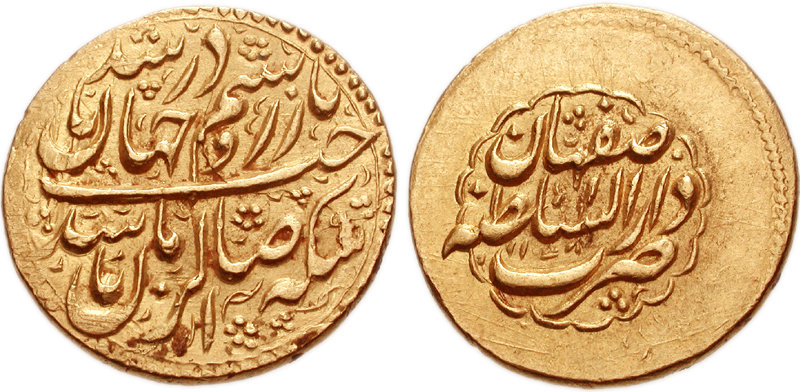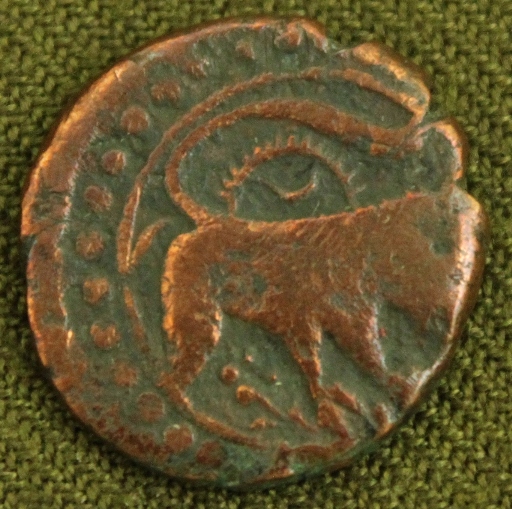|
Mehrali Bey Javanshir
Mehrali bey Javanshir () — was the de facto leader of the Karabakh Khanate prior to Ibrahim Khalil Khan's arrival from Zand Iran. Most of the information about him came from his descendant Ahmad bey Javanshir's '' On the Political Affairs of the Karabakh khanate in 1747–1805''. Life He commanded a wing of 3,000 soldiers during Muhammadhasan khan's invasion of Karabakh in 1757. He was left behind by his father Panah Ali Khan prior to his departure to Iran in 1759. Not accepting Ibrahim Khalil's right to rule, he established several alliances with nomadic tribes in Karabakh. However, he was defeated by the combined forces of his brother and the Avar khanate and had to flee to Karim Khan Zand, who instructed Hedayat-Allah Khan of Gilan to invade Karabakh. However Karim Khan's death in 1779 foiled the plans of Mehrali. This time he left for the Quba Khanate and obtained an alliance with Fatali Khan who was going to invade the Karabakh Khanate in 1785. However Mehrali bey wa ... [...More Info...] [...Related Items...] OR: [Wikipedia] [Google] [Baidu] |
Karabakh Khanate
The Karabakh Khanate was a semi-independent Turkic peoples, Turkic Khanates of the Caucasus, Caucasian khanate on the territories of modern-day Armenia and Azerbaijan established in about 1748 under Safavid dynasty, Iranian suzerainty in Karabakh and adjacent areas. The Karabakh Khanate came under the control of the Russian Empire in 1805 during the course of the Russo-Persian War (1804–13). The Russian annexation of Karabakh was not formalized until the Treaty of Gulistan in 1813, when Fath-Ali Shah Qajar, Fath-Ali Shah of Qajar Iran officially ceded Karabakh to Tsar Alexander I of Russia. The khanate continued to exist under Russian suzerainty until its formal abolition in 1822, when the Karabakh Province, with a military administration, was formed. Russian control was decisively confirmed by the Treaty of Turkmenchay with Iran in 1828. History Background The precursor of the Karabakh Khanate, the Safavid Safavid Karabakh, province of Karabakh, was one of the provinces ... [...More Info...] [...Related Items...] OR: [Wikipedia] [Google] [Baidu] |
Hedayat-Allah Khan
Hedayat-Allah Khan ( fa, هدایتالله خان) was a Gilaki prince, who was the semi-independent ruler of Gilan from 1753 to 1786. Background Hedayat-Allah was the son of Agha Jamal Fumani, a tribal chieftain from Fuman who was descended from the Dubbaj clan, which ruled Gilan in the late 15th-early 16th century, and claimed descent from the pre-Islamic Sasanian Empire and the biblical prophet Isaac. In 1749, two years after the death of the Iranian emperor Nader Shah (r. 1736–1747), Agha Jamal Fumani, along with a certain Agha Safi, seized Gilan. During the war between the Zand dynasty and the Qajars, the Qajar chieftain of the Qoyunlu branch, Mohammad Hasan Khan Qajar, made Gilan submit to his rule and in 1752 married the daughter of Agha Jamal Fumani. However, on November 6, 1752, Agha Jamal Fumani was killed in Shaft by Agha Hady Shafti, who, with the aid of Mirza Zaki, who governed Gaskar, controlled the province. However, his rule was short-lived—4 months ... [...More Info...] [...Related Items...] OR: [Wikipedia] [Google] [Baidu] |
1785 Deaths
Events January–March * January 1 – The first issue of the ''Daily Universal Register'', later known as ''The Times'', is published in London. * January 7 – Frenchman Jean-Pierre Blanchard and American John Jeffries travel from Dover, England to Calais, France in a hydrogen gas balloon, becoming the first to cross the English Channel by air. * January 11 – Richard Henry Lee is elected as President of the U.S. Congress of the Confederation.''Harper's Encyclopaedia of United States History from 458 A. D. to 1909'', ed. by Benson John Lossing and, Woodrow Wilson (Harper & Brothers, 1910) p167 * January 20 – Battle of Rạch Gầm-Xoài Mút: Invading Siamese forces, attempting to exploit the political chaos in Vietnam, are ambushed and annihilated at the Mekong River, by the Tây Sơn. * January 27 – The University of Georgia in the United States is chartered by the Georgia General Assembly meeting in Savannah. The first students are admi ... [...More Info...] [...Related Items...] OR: [Wikipedia] [Google] [Baidu] |
1735 Births
Events January–March * January 2 – Alexander Pope's poem ''Epistle to Dr Arbuthnot'' is published in London. * January 8 – George Frideric Handel's opera ''Ariodante'' is premièred at the Royal Opera House in Covent Garden, London. * February 3 – All 256 people on board the Dutch East India Company ships '' Vliegenthart'' and ''Anna Catherina'' die when the two ships sink in a gale off of the Netherlands coast. The wreckage of ''Vliegenthart'' remains undiscovered until 1981. * February 14 – The ''Order of St. Anna'' is established in Russia, in honor of the daughter of Peter the Great. * March 10 – The Russian Empire and Persia sign the Treaty of Ganja, with Russia ceding territories in the Caucasus mountains to Persia, and the two rivals forming a defensive alliance against the Ottoman Empire. * March 11 – Abraham Patras becomes the Governor-General of the Dutch East Indies (now Indonesia) upon the death of Dirck van Cloon. ... [...More Info...] [...Related Items...] OR: [Wikipedia] [Google] [Baidu] |
People From Karabakh
A person ( : people) is a being that has certain capacities or attributes such as reason, morality, consciousness or self-consciousness, and being a part of a culturally established form of social relations such as kinship, ownership of property, or legal responsibility. The defining features of personhood and, consequently, what makes a person count as a person, differ widely among cultures and contexts. In addition to the question of personhood, of what makes a being count as a person to begin with, there are further questions about personal identity and self: both about what makes any particular person that particular person instead of another, and about what makes a person at one time the same person as they were or will be at another time despite any intervening changes. The plural form "people" is often used to refer to an entire nation or ethnic group (as in "a people"), and this was the original meaning of the word; it subsequently acquired its use as a plural form of ... [...More Info...] [...Related Items...] OR: [Wikipedia] [Google] [Baidu] |
Azerbaijani Nobility
Azerbaijani may refer to: * Something of, or related to Azerbaijan * Azerbaijanis * Azerbaijani language See also * Azerbaijan (other) Azerbaijan is a country in the Caucasus. Azerbaijan or Azərbaycan may also refer to: * ''Azerbaijan'' (newspaper), a state-owned newspaper of Azerbaijan * Azerbaijan Soviet Socialist Republic, part of the former Soviet Union (1936–1991) * Aze ... * Azeri (other) * Azerbaijani cuisine * Culture of Azerbaijan * {{Disambig Language and nationality disambiguation pages ... [...More Info...] [...Related Items...] OR: [Wikipedia] [Google] [Baidu] |
Mehdigulu Khan Javanshir
Mehdigulu Khan Javanshir ( fa, مهدیقلی خان جوانشیر, translit=Mehdiqoli Xān Javānšir, az, مهدیقلو خان جاوانشیر; 1763 or 1772–1845) was the last Khan of the Karabakh Khanate, functioning as its head from 1806 to 1822. His only known issue was Khurshidbanu Natavan, a famous Azerbaijani poetess. Early life Mehdigulu Khan was born in 1763 to Ibrahim Khalil, the second Khan of Karabakh, and Khurshid Begum, daughter of Javad Khan and a granddaughter of Shahverdi Khan of Ganja. Although according to a report written by Tsitsianov on November 1805, he was 33 at time of writing - hence, possibly born . He lost half of his nose during fight against Qajars in his youth. Career under Ibrahim Khalil Khan He was sent together with his half-brother Mammad Hasan Agha Javanshir in pursuit of his cousin Muhammad Bey (son of Mehrali Bey), who seized rulership of Karabakh during chaos ensued due to Agha Muhammad Khan's death in 1797. In July 1805, he wa ... [...More Info...] [...Related Items...] OR: [Wikipedia] [Google] [Baidu] |
Aghasi Khan
{{Infobox monarch , name = Aghasi Khan , title = Khan of Shirvan Khanate , image = , caption = , reign = 1763–68 1774–86 , coronation = 1763 , full name = Aghasi Khan Khanchobany-Sarkar , native_lang1 = , native_lang1_name1 = Ağası xan Xançobanı-Sərkar , birth_date = 1731 , birth_place = Shamakhy , death_date = 1788 , death_place = Baku , burial_date = , burial_place = , predecessor = Hajji Muhammad Ali Khan/ Muhammad Said Khan/Quba Khanate , successor = Manaf Zarnavai/ Askar Khan , spouse = , spouse 1 = Bibi Khanum khanum , spouse 2 = Khadija Khanum , spouse 3 = Khadija Khanum khanum , spouse 4 = Abida Khanum , royal house = , dynasty = House of Sarkar , father = Askar Bey Sarkar , mother = Ummugulsum ... [...More Info...] [...Related Items...] OR: [Wikipedia] [Google] [Baidu] |
Quba Khanate
The Quba Khanate (also spelled Qobbeh; fa, خانات قبه, Khānāt-e Qobbeh) was one of the most significant semi-independent khanates that existed from 1747 to 1806, under Iranian suzerainty. It bordered Caspian sea to the east, Derbent Khanate to the north, Shaki Khanate to the west, and Baku and Shirvan Khanates to the south. In 1755 the khanate conquered Salyan from the Karabakh Khanate. History The khans of Quba were from the Qeytaq tribe, which was divided into two branches, the Majales and the Yengikend. The origin of the tribe is obscure. First attested in the 9th-century, only their chieftain and his family were Muslims, according to the historian al-Masudi (died 956). The chieftain bore the Turkic title of ''Salifan'', as well as the title of ''Kheydaqan-shah''. According to the 17th-century Ottoman historian, Evliya Çelebi (died 1682), the Qeytaq spoke Mongolian, but this was dismissed as a "hoax" by the Iranologist Vladimir Minorsky (died 1966), who demonstra ... [...More Info...] [...Related Items...] OR: [Wikipedia] [Google] [Baidu] |
Karim Khan Zand
Mohammad Karim Khan Zand ( fa, محمدکریم خان زند, Mohammad Karīm Khân-e Zand; ) was the founder of the Zand Dynasty, ruling from 1751 to 1779. He ruled all of Iran (Persia) except for Khorasan. He also ruled over some of the Caucasian lands and occupied Basra for some years. While Karim was ruler, Iran recovered from the devastation of 40 years of war, providing the war-ravaged country with a renewed sense of tranquillity, security, peace, and prosperity. The years from 1765 to Karim Khan's death in 1779, marked the zenith of Zand rule. During his reign, relations with Britain were restored, and he allowed the East India Company to have a trading post in southern Iran. He made Shiraz his capital and ordered the construction of several architectural projects there. As noted by ''The Oxford Dictionary of Islam'', "Karim Khan Zand holds an enduring reputation as the most humane Iranian ruler of the Islamic era". When following the Islamic Revolution of 1979, the nam ... [...More Info...] [...Related Items...] OR: [Wikipedia] [Google] [Baidu] |
Panah Ali Khan
Panah Ali Khan Javanshir (, ; 1693 – 1759 or 1763) was the founder and first ruler of the Karabakh Khanate under Persian suzerainty. Ancestry Panah Ali Khan was from the Sarijali branch of the clan of Javanshir, who with their associate clan of ''Otuz-Iki'' (meaning ''thirty-two'' in Azerbaijani) had for long been rivals of the ''Yirmi-Dört'' (meaning ''twenty-four'' in Azerbaijani) and Ziyadoghlu Qajars of Ganja, whose chiefs had been official rulers of Karabakh since Safavid times. His father's name was Ibrahim Agha Javanshir but information on his further ancestry is quite complicated. According to Mirza Adigozal bey, Panah Ali's paternal great-grandfather and namesake Panah Ali bey served at the headquarters of the governors (''beglarbegs'') of the Karabakh-Ganja province in the early 17th century, at the time when the region was directly controlled by the Safavid Empire of Iran. He soon retired, married a woman from the Javanshir clan of Karabakh and had a son by th ... [...More Info...] [...Related Items...] OR: [Wikipedia] [Google] [Baidu] |
.png)



_1938.jpg)

